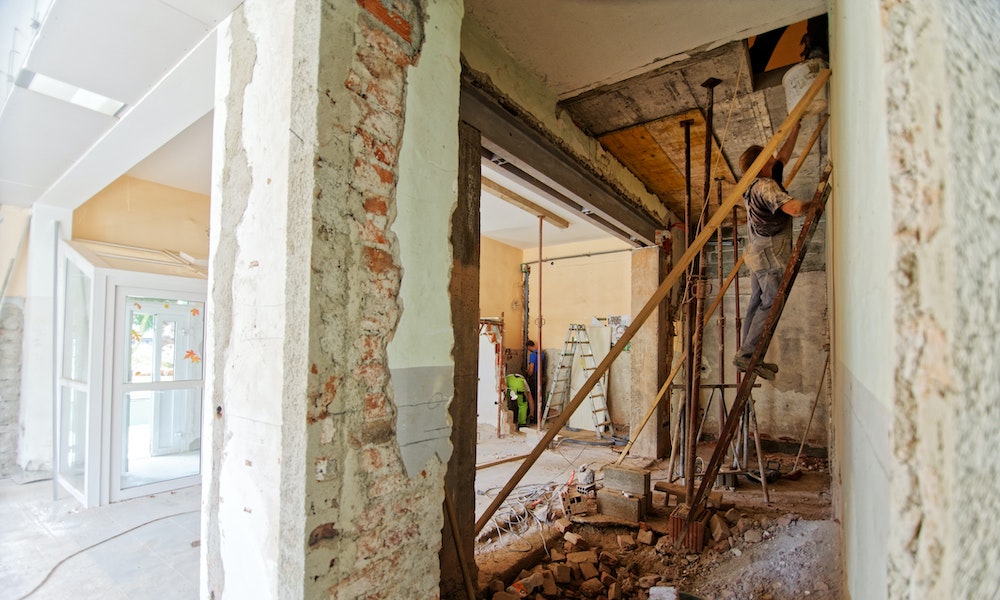How do I price my holiday let?
Pricing a holiday let is a tricky business. Getting it right so that you actually make a profit isn’t always about charging the most but about finding a balance between the premium price point and an amount that is actually going to generate bookings.
To some extent, what you charge will depend on what you want from your holiday home, but it must also reflect the quality of the property and the experience offered to guests. Do you want almost guaranteed income or is it more about one-off lets?
In this article we’ll provide some holiday lettings pricing advice and explore all the points to consider when it comes to pricing holiday lets.
Essential pricing considerations for holiday lets
- your personal wants and needs from your holiday let
- the property’s unique selling points
- running costs
- an understanding of the holiday home marketplace
- the local market
- the wider and fluctuating influences on the market
- your ideal guests are
- seasonality

How to price your holiday let:

Know what you want from your holiday let
- Do you want your holiday let to be booked out for as many weeks of the year as possible?
- Or do you just want to let it out when you’re not using it?
- Do you want the freedom to stay yourself as and when?
- How much does the property need to earn to cover costs?
- How much profit after costs and tax does it need to generate for you?
Some of these might seem like obvious questions, but thinking about them will help to decide what you can and want to charge for letting. There’s no right answer, it’s about making your holiday let work for you as well as it can.

Know who your ideal guests are
Who do you want to let your property to? You might simply say ‘anyone who has the money to pay for it’, and that’s fine. On the other hand, you might want to target couples, it might be somewhere you’re happy for people to bring their dogs. It might be a family-friendly holiday home, or you might want to avoid families with young children due to the layout or to reduce wear and tear.
Knowing who your ideal guests are will help to market your property, but it will also be reflected in the pricing of your home.

Know the property’s unique selling points
Naturally, your property itself is one of the biggest influences on the prices that you can command from holidaymakers. Its capacity, its style, its amenities will all play a part in identifying its position in the market. Those will also influence how much you want to charge as a deposit in case of any damages.
Understanding and being able to highlight and market your property’s unique selling points (USPs) is integral to deciding and justifying holiday let pricing, and in persuading guests it’s reasonably priced.

Understand agency fees
Self-catering agency commission is really going to set a baseline for what you can afford to play with when it comes to pricing your property and responding to market changes. If commission is 16%-32% of revenue that traditional letting and marketing agents command, that will limit the elasticity of your pricing according to seasonal or wider socio-economic trends.
Online travel agents like Vrbo and Airbnb typically charge just 3% to 4%, but don’t offer any letting support. This is where the HolidayHost difference allows the best of all worlds, maximising your profits but providing expert support (including pricing strategy) for a combined commission of 12%+VAT.
The running costs of your property
Of course, in addition to agency fees, the running costs of your holiday let will also influence what you need to charge to cover costs and make a profit.
Consider:
- cleaning
- laundry
- gardening
- window cleaning
- wear and tear maintenance (like touching up scuff marks on the walls)
- replacing things like broken glasses
- cost of services such as water, heating, gas, insurance
- any property management fees

Understand the local market
It’s important to have an understanding and stay aware of the surrounding market. Your property listing will be marketed alongside other holiday lets in the area, and if yours is significantly more expensive than others without showing any tangible and compelling reason why, you will miss out on bookings. By the same token, if it’s significantly cheaper for no real reason, that could make potential guests think there’s a problem with the property.
Much like public mood, the local market can fluctuate. If there has been a sudden influx of letting properties to the market then you may find yourself in a more competitive sphere. If lots of properties have been renovated, you may also find that your property’s position in that market has changed. This all comes down to having local knowledge and being strategic with the way in which your property is priced.

Holiday letting seasonality
Different parts of the UK will have different relationships with seasonality, but in South Devon and East Cornwall, there are definitely times of the year when a holiday by the sea is more popular than others. As a result, in our price pointing we provide suggestions that allow for seasonal fluctuations. In the summer months, particularly in the school holidays, prices tend to be at their highest, with spikes around Christmas and New Year as well as the Easter and bank holidays, and half term weeks.
Some holiday homeowners ask why we don’t recommend a flat fee throughout the year. While we understand the logic, the reason for seasonal pricing is in part linked to the local market. If you appear to be significantly more expensive than your counterparts then you will most likely lose out on the bookings. So again, to some extent this depends on your wants and needs as an owner and how much each booking is worth to you.

Inflation
Inflation is one of those unavoidable elements that will influence holiday let pricing, your profits, or both. This becomes a particular issue when you have guests who want to return to your beautiful home year after year and become disgruntled at rising prices.
We suggest reviewing prices at the end of the summer for the following year, taking into account inflation as well as myriad other factors outlined in this article. We can also support you in handling requests for repeat bookings as we appreciate it can sometimes be a difficult conversation to increase prices for guests who've loved your place and want to come back.

Changes to your holiday home
One of the most significant ways to increase the commercial appeal and the letting income from your property is to refresh or renovate. That might be a cosmetic upgrade or it might be something more substantial, like an extension or adding a swimming pool.
There’s a premium attached to luxury properties - more bedrooms, more bathrooms and more space can all have a significant impact on the income potential from your property. Equally, staying on top of wear and tear and ensuring that how your listing photographs present your home match what greets guests on arrival are imperative if you’re to keep justifying that price tag.
Public mood
Public mood is another reason we don’t set prices too far into the future- because the demand for holidays changes. At no time was this more significant than in the months following lockdown, when demand skyrocketed for holiday lets in South Devon and East Cornwall.
In 2021 owners were able to command almost double what they could in 2019 because there was enormous public demand for holidays in the area. That has driven revenues up for holiday homeowners.
However, as overseas holidays become viable again, that might level off. It might not necessarily mean prices come down, but they may need to stay the same in order to remain competitive in the market. After all, it’s not about being able to list the highest price, but generating bookings to turn prospective income into a reality.

Types of holiday let pricing
Within the overarching rate that your property can command, there are also other ways of boosting sales by adapting pricing to meet the different seasons, wants and needs of holidaymakers. For example, you might have a rate for short breaks for people who don’t want to spend a full week on holiday - this can be an excellent way to generate income in the off-peak seasons. Or you might have special offers for last minute availability.
Here are the main types of holiday let pricing that can help boost your marketing and your income:
Price per night
Just as it sounds, and much like when you stay at a hotel, at certain times of the year you could include a price per night. This is likely to be the most expensive option for holidaymakers, but could be the perfect option for someone travelling for a special occasion, like a wedding.
Short break pricing
Lots of people don’t want to book a whole week away, so having a pricing option for short breaks can be a great way to generate more bookings. It may also work to have a price for midweek breaks and weekend breaks weighted accordingly to the difference in demand for the two types of short break.
Long stay pricing
At the opposite end of the scale, you might want to consider offering particular rates for long stays. Now that more people can work from home, perhaps a family might want to book out your property for a few weeks or a whole month. This type of booking will reduce your admin costs and will guarantee income for that period, so consider making it attractive to guests!
Peak season pricing
There are naturally certain times of the year where properties get booked up fast, meaning you can command a premium when it comes to pricing. In South Devon and East Cornwall, this is typically through July and August, over Christmas and New Year, and during the Easter holidays.
Shoulder season pricing
Shoulder season is the bit in between a region’s low and high tourism periods, where travellers can typically benefit from more competitive pricing. September is a great example in the South West, when people who are retired or without children tend to visit to enjoy the last of the summer days. Because demand during this period is less than in August yet the weather is almost equally favourable and attractions and amenities remain fully open, shoulder season holiday let pricing is reflective of those factors.
Low season pricing
Just as it sounds, low season pricing is during the months that typically see far fewer people visiting the area, so on balance holidays are much cheaper to book. For the South West, this is likely to be November, January and February in particular.
Special event pricing
If you know the area then you will know if there are special events that will attract more holidaymakers and therefore allow for slightly higher pricing for your holiday let. That might be annual events, like the Salcombe Town Regatta, or it might be a one off - like a royal wedding, a solar eclipse or a sporting event.
Discounts and special offers
You don’t need to offer discounts all the time to attract attention from holidaymakers, but if you have a gap that needs filling, whether that’s last minute availability or as the result of a cancellation, then a discount can be a wonderful way to get a booking fast. This is also where strategic holiday let pricing comes into its own, because there needs to be enough margin between your price and your costs to allow for this last minute flexibilities.
Dynamic pricing for holiday lets
Dynamic pricing, also referred to as surge pricing, demand pricing, or time-based pricing, is a flexible pricing strategy that fluctuates with demand. You will probably have seen it on airlines - you log on one minute and see price A, then you refresh the screen 20 minutes later and it’s changed.
The benefits of dynamic pricing are:
- It allows you to maximise profits
- Can encourage people to book then and there if they know the price could go up
- It reflects pricing on demandIt can create more demand
- It gives an insight into guest behaviour
However, the disadvantages of dynamic pricing are:
- It can breed negative feelings amongst guests and potential guests
- It can lead you to lose sales
- It reduces guest loyalty
- It creates a price ‘war’
Influences on holiday let pricing
Holiday let pricing needs to be reviewed at the end of the summer ahead of releasing pricing for the next year. This is a good opportunity to see if you can earn more from it and if the market can support that. You might have made changes to the property that warrant a pricing increase. Alternatively, something else (in any of the areas mentioned above) might have changed that means pricing needs reviewing.
At HolidayHost, we work with holiday homeowners to review the pricing of their holiday let each year. If now’s a good time to have that conversation, and to consider switching your property to us, we’d love to hear from you.
If you would like to consult HolidayHost about your property and its letting potential, contact us any time



